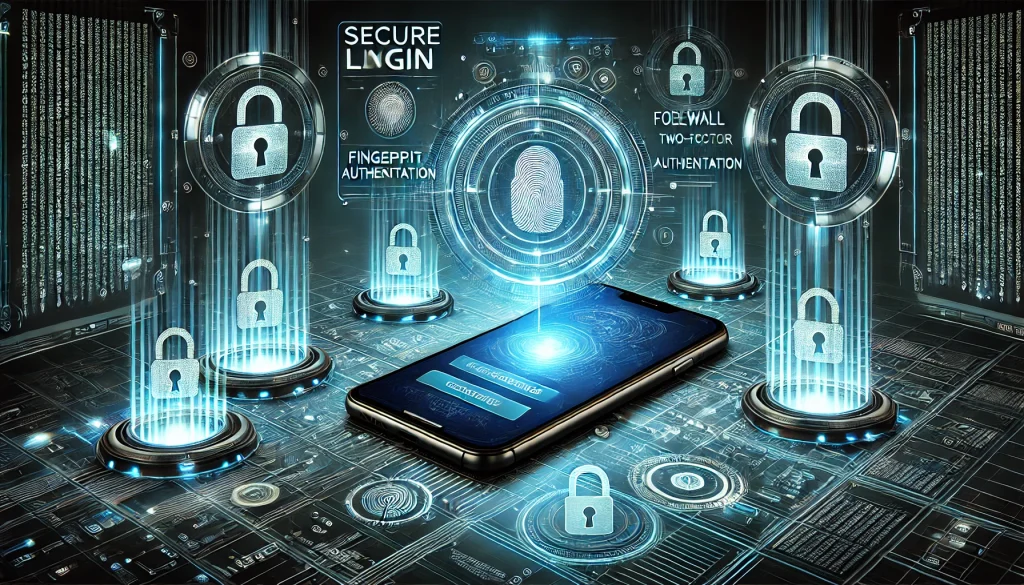Mobile Security Tips in Bangladesh: How to Protect Your Phone from Cyber Threats
As smartphone usage continues to grow in Bangladesh, so does the risk of cyber threats. With increasing cases of mobile hacking, phishing, and malware attacks, ensuring mobile security has never been more crucial. In this guide, we will explore essential mobile security tips to help users avoid mobile hacking and strengthen cybersecurity in Bangladesh.

Why Mobile Security Matters in Bangladesh
With the widespread adoption of digital banking, e-commerce, and social media platforms, cybercriminals have more opportunities to exploit users. Cybersecurity in Bangladesh is a growing concern as hackers use sophisticated techniques to steal personal information, financial data, and login credentials. Therefore, securing your mobile device is essential to protect your privacy and financial security.
Common Cyber Threats Faced by Mobile Users in Bangladesh
Understanding the threats is the first step toward effective mobile security. Some of the most common cyber threats faced by users in Bangladesh include:
1. Phishing Attacks
Phishing involves fraudulent messages that trick users into revealing sensitive information. Cybercriminals often send fake emails or SMS pretending to be from banks or official organizations.
2. Malware and Spyware
Malware can be installed on your device through malicious apps or infected websites. Once installed, spyware can steal personal data, track your online activities, and even record keystrokes.
3. SIM Card Cloning
Hackers can clone SIM cards to intercept calls and messages, gaining unauthorized access to accounts linked to your phone number.
4. Public Wi-Fi Exploits
Using unsecured public Wi-Fi can expose your phone to hackers who intercept data transfers and steal credentials.
5. Data Breaches
Many companies in Bangladesh store user data. A data breach can expose sensitive information, putting users at risk of identity theft and financial fraud.
Essential Mobile Security Tips to Avoid Mobile Hacking
1. Use Strong Passwords and Biometrics
A strong password is your first line of defense against unauthorized access. Use a combination of letters, numbers, and symbols. Additionally, enable biometric authentication, such as fingerprint or face recognition, for added security.
2. Enable Two-Factor Authentication (2FA)
Two-factor authentication (2FA) adds an extra layer of security by requiring a secondary code sent to your phone or email. This prevents unauthorized access even if someone obtains your password.
3. Install Apps Only from Trusted Sources
Avoid downloading apps from unknown sources, as they may contain malware. Stick to official app stores like Google Play and the Apple App Store to reduce risks.
4. Keep Your Operating System and Apps Updated
Regular updates include security patches that fix vulnerabilities. Cybersecurity experts in Bangladesh recommend updating your phone’s software and apps frequently to prevent security loopholes.
5. Avoid Using Public Wi-Fi for Sensitive Transactions
Public Wi-Fi networks in coffee shops, malls, and public transport are often unsecured. If you must use public Wi-Fi, use a VPN (Virtual Private Network) to encrypt your data and prevent interception.
6. Review App Permissions
Some apps request unnecessary permissions that could be exploited. Always review the permissions before installing an app and disable access to personal data that is not required for its functionality.
7. Use Mobile Security Software
Installing a reputable mobile security app can provide real-time protection against malware, phishing attempts, and unauthorized access.
8. Regularly Backup Your Data
Frequent backups ensure that your data remains safe even if your device is lost, stolen, or compromised by malware. Use cloud services or external storage for backups.
9. Avoid Clicking Suspicious Links
Cybercriminals often send fake links via SMS, email, or social media. Avoid clicking on unfamiliar links, especially those promising financial rewards or urgent actions.
10. Use Encrypted Messaging Apps
Apps like Signal, WhatsApp, and Telegram offer end-to-end encryption, ensuring that your private conversations remain secure.
How Cybersecurity in Bangladesh is Evolving
The government and private organizations in Bangladesh are taking steps to enhance cybersecurity. The Bangladesh Telecommunication Regulatory Commission (BTRC) has introduced initiatives to raise awareness about mobile security. Additionally, financial institutions are implementing stricter security measures to protect digital transactions.
With increasing mobile threats, individuals must take responsibility for their own security by adopting best practices and staying informed about emerging cyber risks.
Final Thoughts
Mobile security is a crucial aspect of digital safety in today’s connected world. By following these mobile security tips, you can avoid mobile hacking and ensure better cybersecurity in Bangladesh. Taking proactive steps, such as using strong passwords, enabling 2FA, and avoiding public Wi-Fi, can significantly reduce risks.
As cybersecurity in Bangladesh continues to develop, users must remain vigilant against evolving threats. By staying informed and implementing security measures, you can protect your personal and financial information from cybercriminals.
